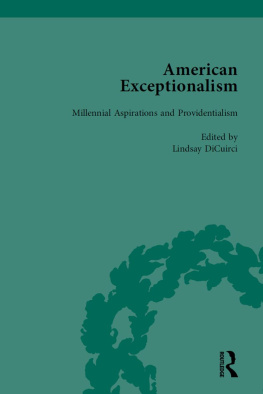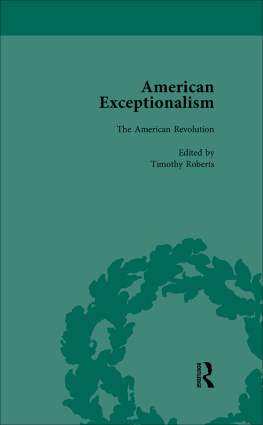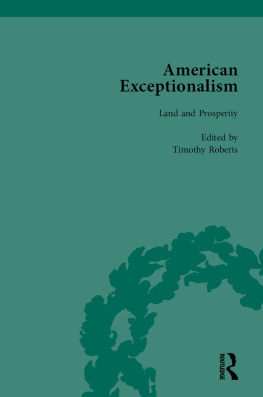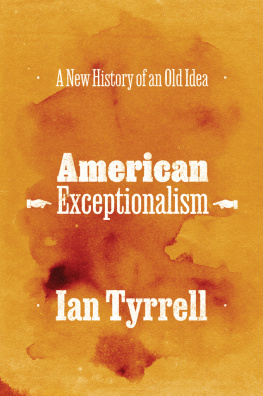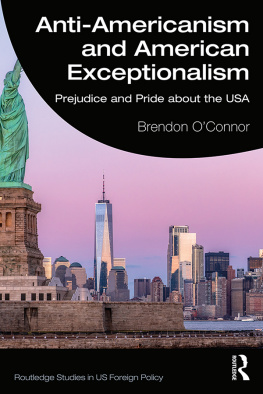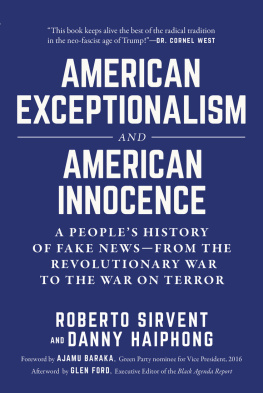First published 2013 by Pickering & Chatto (Publishers) Limited
Published 2016 by Routledge
2 Park Square, Milton Park, Abingdon, Oxon OX14 4RN
711 Third Avenue, New York, NY 10017, USA
Routledge is an imprint of the Taylor & Francis Group, an informa business
Copyright Taylor & Francis 2013
Copyright Editorial material Lindsay DiCuirci 2013
To the best of the Publishers knowledge every effort has been made to contact relevant copyright holders and to clear any relevant copyright issues. Any omissions that come to their attention will be remedied in future editions.
All rights reserved, including those of translation into foreign languages. No part of this book may be reprinted or reproduced or utilised in any form or by any electronic, mechanical, or other means, now known or hereafter invented, including photocopying and recording, or in any information storage or retrieval system, without permission in writing from the publishers.
Notice:
Product or corporate names may be trademarks or registered trademarks, and are used only for identification and explanation without intent to infringe.
BRITISH LIBRARY CATALOGUING IN PUBLICATION DATA
American exceptionalism.
1. Exceptionalism United States. 2. National characteristics, American. 3. United States Religion. 4. United States History, Military Sources. 5. Economic development United States History Sources.
I. Roberts, Timothy Mason, 1964 II. DiCuirci, Lindsay.
973-dc23
ISBN-13: 978-1-84893-289-0 (set)
Typeset by Pickering & Chatto (Publishers) Limited
A perennial favourite amongst American politicians of any party, John Winthrops characterization of the Massachusetts Bay colony as a city upon a hill, has long been a touchstone of American exceptionalist discourse. In its original New Testament context, the city upon a hill refers to Jesuss admonishment that his people be a light in the darkness, just as he claimed to be the light of world in John 8:12. However, this metaphor also reminded the people of their vulnerable and exposed position. As the verse in the Sermon on the Mount reads in Matthew 5:14, Ye are the light of the world. A city that is set on a hill cannot be hid. It is this second portion of the verse that concerned Winthrop most as, in his famed Model of Christian Charity, he reminded the colonists on board the ship Arabella that the eyes of all people are upon us. If the Puritans were to fail in faithfulness to their God, he would surely withdraw His present help and make the colony a by-word through the world.1 The separatists believed they were in a covenant with God and they keenly felt the stakes of their enterprise not only for their own lives, but for the Christian faith at large and the future establishment of Gods kingdom on earth. Thus, the city upon a hill was not simply a beacon of hope, as its later iteration, the Statue of Liberty, might suggest, but an emblem of hazardous experimentation. As Deborah Madsen has described, Winthrops words, more than inspiring a sense of superiority, fostered a self-consciousness and degree of introspection that is unique to American culture.2 Thus, the city on a hill, the faithful Puritan believed, was best pictured teetering on the edge of a cliff.
Scholars of American exceptionalism frequently locate the origin of the idea in Winthrops oration, which is read as both a social contract and a sermon. In the first chapter of his book on American exceptionalism, historian Godfrey Hodgson begins with this oft-quoted passage in Winthrops sermon and argues that in its original context it was meant to convey that the colony would be an example to other English colonies, in North America and elsewhere, but not that the colony was unique or exceptional in any way.3 The distinction that Hodgson wants to make is between a self-proclaimed status of exemplary and one of exceptional. An exemplary status suggests a model that is desirable and attainable. Exceptional, on the other hand, suggests a status that is impossible to replicate. This distinction is illustrated compellingly in religious writings of the colonial, early national and antebellum periods. Despite a contemporary impulse to expose American exceptionalism as a myth, religious thinkers and writers from the colonial period through the turn of the nineteenth century still frequently drew upon religious rhetoric to insist on Americas absolute uniqueness. Specifically, writers called attention to Gods providential design for North America as a New Jerusalem whose establishment would usher in the Second Coming of Jesus Christ. From early Puritan sermons that cast New England as the Promised Land to antebellum magazines urging missionaries to follow the call, Go West, young man, the belief in America as a new frontier in the extension of Christianity and preparation for the end times held tremendous rhetorical sway.
As Ruth Bloch describes in her seminal work on millennialism in American thought, The idea that human history is divinely ordained and will lead to a period of heavenly perfection on earth can be dated at least as far back as the prophecies of Isaiah in the eighth century B.C.4 The scriptural theme of Jesus Christs return permeates the New Testament as well, anticipating a time when his work on earth would be completed. In the New Testament book of Matthew, chapter 24, Jesus speaks to his disciples concerning the end times. As signs of his return, Jesus describes wars and rumors of wars, warning that nation shall rise against nation, and kingdom against kingdom. There shall be famines and pestilences and earthquakes.5 Then, most importantly for the Puritan community, he admonishes the disciples, But of that day and hour knoweth no man, no, not the angels of heaven, nor the Son, but my Father only,6 thus, believers must keep watch therefore: for ye know not what hour your Lord doth come.7 This sense of imminent return, albeit cloaked in mystery, was profoundly felt in the early Christian church and recaptured by the separatists as a legacy of the Reformation. Christians scoured the book of Revelation, a mystifying piece of eschatological literature, for signs of Christs Second Coming, attempting to decipher its cryptic references. However, believers primarily clung to chapter 21 of the book, in which the author John writes, And I saw a new heaven and a new earth: for the first heaven and the first earth were passed away; and there was no more sea. And I John saw the holy city, new Jerusalem, coming down from God out of heaven, prepared as a bride adorned for her husband.8 And in a final proclamation, Jesus states, Surely I come quickly.9 Armed with this anticipatory statement, Protestants taught that the establishment of the New Jerusalem was at hand.
Protestants were not, however, in agreement about when Christ might return to claim his followers, relative to the millennium. Premillennialists held that Christ would return on some appointed day and thus initiate his millennial reign, while postmillennialists believed that the church would establish the millennium first and thus spur on Christs return.10 The latter position placed a greater emphasis on the church fulfilling its duties on earth while the former was attended by trepidation and a sense of foreboding that resonated strongly within the Puritan community. Within the premillennialists, there were also subgroups: historicist and futurist. According to Timothy Weber, historicists held that the prophecies of Revelation were being fulfilled throughout history while the futurists argued that none of the prophecies had been fulfilled yet, and so they lived in anticipation of these events.11 The influence of both premillennialist and postmillennialist strains is evident in the range of texts reproduced in this volume and, as Weber further notes, marked shifts occur within these eschatological frameworks which reflect changing attitudes and anxieties. In other words, how congregations felt about the end of days often served as an index to the political, social and religious climate more generally.


